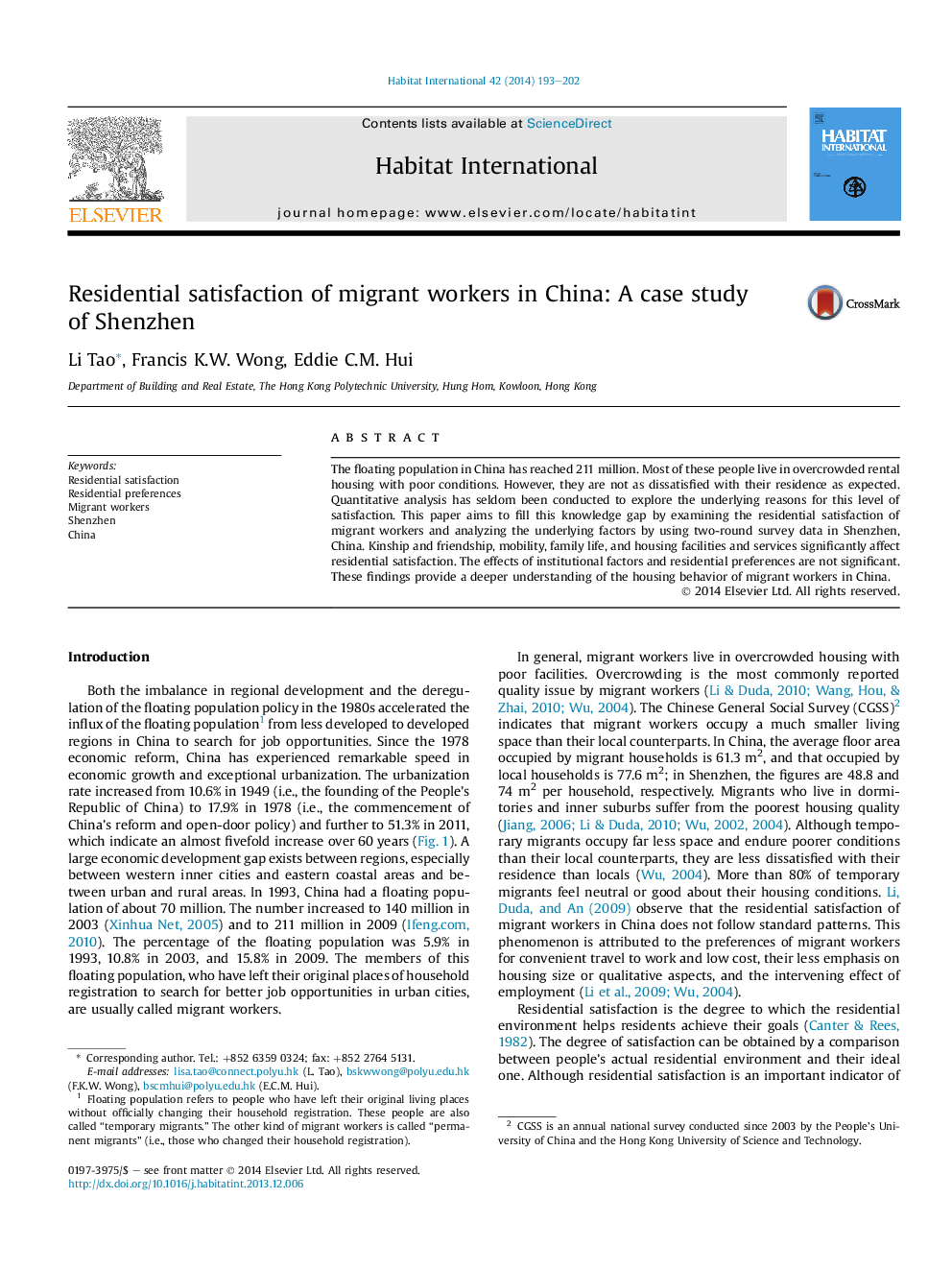| Article ID | Journal | Published Year | Pages | File Type |
|---|---|---|---|---|
| 1047974 | Habitat International | 2014 | 10 Pages |
•Residential satisfaction of migrant workers in China does not follow standard patterns.•Their preferences for low price, safety, and convenience can be satisfied.•Institutional factors do not have significant effects on their residential satisfaction.•Kinship and friendship, mobility, family life, and housing conditions have significant effects.•Migrant workers who place more emphasis on their community tend to feel less satisfied.
The floating population in China has reached 211 million. Most of these people live in overcrowded rental housing with poor conditions. However, they are not as dissatisfied with their residence as expected. Quantitative analysis has seldom been conducted to explore the underlying reasons for this level of satisfaction. This paper aims to fill this knowledge gap by examining the residential satisfaction of migrant workers and analyzing the underlying factors by using two-round survey data in Shenzhen, China. Kinship and friendship, mobility, family life, and housing facilities and services significantly affect residential satisfaction. The effects of institutional factors and residential preferences are not significant. These findings provide a deeper understanding of the housing behavior of migrant workers in China.
